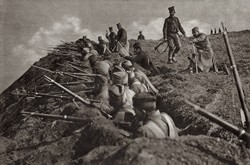A transnational analysis of the history of the modern Balkan region
Traditionally, studies on the history of the modern Balkans have been done by national historians and been constrained within national boundaries. The few historians engaged in Balkan studies tend to have a somewhat broader perspective. In reality however, for the most part, these studies have been based on firmly established entities, such as ethnic groups. The EU-funded project ENTANGLED BALKANS (Balkan histories: Shared, connected, entangled) used a transnational and relational perspective to study the modern history of the Balkans. Research reflected on the interacting entities, during the process of their creation, rather than taking them as given. A team of researchers focused on the formation of national ideologies and identities in constant interaction between communities and the struggle for cultural affirmation and territorial separation. They explored Romanian-Greek and Bulgarian-Greek interactions, the attempt to create a wider Ottoman identity and the formation of a Macedonian national ideology. Additionally, researchers studied the formation of literary languages and language policies, guided by the idea of differentiation and opposition to neighbouring countries. More specifically, they looked at the development of Serbo-Croatian, standardisation of the Macedonian language and formation of the literature in the Albanian language. The second part of the study examined the transfer and adaptation of ideas and institutions in the region, such as liberalism, socialism, agrarianism, fascism and communism. Researchers looked at the ways in which ideas and institutions were selected, transferred and adapted to local conditions. These were guided by the ideas of modernity and national development. ENTANGLED BALKANS also investigated legacies in the Balkans, such as the emblematic Byzantine, Ottoman and Thracian legacies, and their different interpretations by historians, often contradicting one another. Surprisingly, it was during debates on the division of legacies that the interconnectedness of people from the region became the most clear. More specific issues included the litigation between Bulgarian and Romanian historians over two Bulgarian medieval kingdoms. It is also interesting to note the effort from various historians from the Balkans to 'synchronise' their history with the periods of the Renaissance and Enlightenment in western Europe, ignoring the Ottoman context. Finally, the project contributed to the overall literature on the subject with a theoretical analysis of the advantages of transnational approaches and its consequences for regionalism. Case studies ranging from perceptions on space and time to architecture and cinema demonstrate the interconnectedness and exchanges that have happened in the region.
Keywords
Transnational analysis, history, Balkan region, ENTANGLED BALKANS, national ideologies







